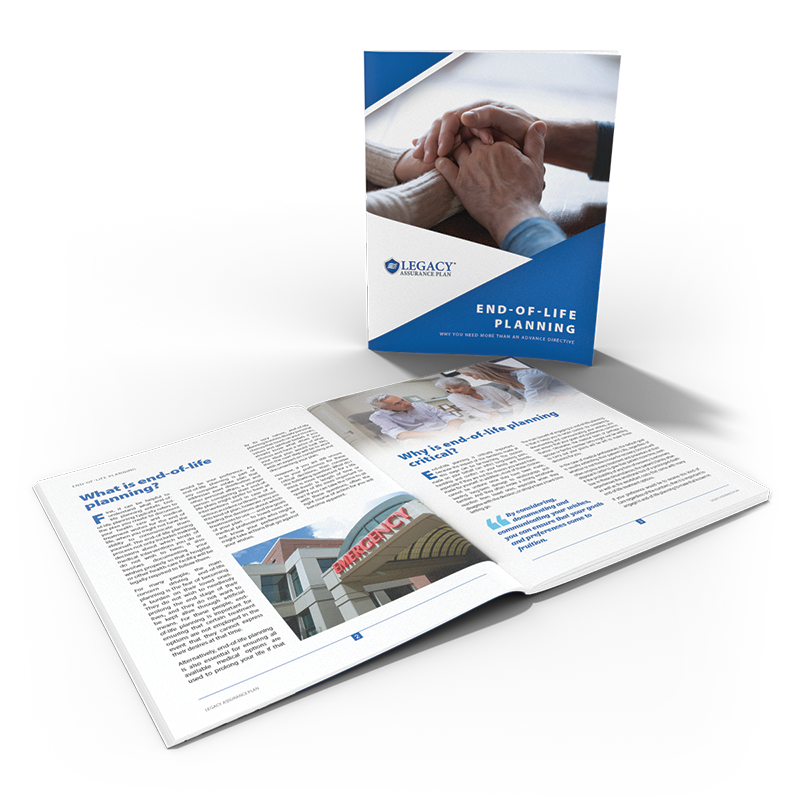End-of-life planning typically refers to the plan you create to document your health care and medical treatment wishes for the end of life when you might not have the ability to communicate them yourself. This planning process includes making decisions about which kinds of medical interventions you wish or do not wish to have and involves documenting your wishes properly so that a hospital or other health care facility will be aware of them.
The main benefit of engaging in end-of-life planning is that it helps you to retain control. By documenting and communicating your wishes, you can ensure that your goals and preferences come to fruition. Otherwise, the medical team or perhaps a spouse or family member (who might not be willing to carry out your plans) will be left to make those decisions for you.
The primary decisions involved with creating an end-of-life plan are:
- Artificial respiration
- Palliative care (pain medication)
- Hydration
- Nutrition (feeding tube)
- Organ donation
- Final arrangements



